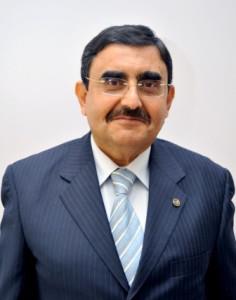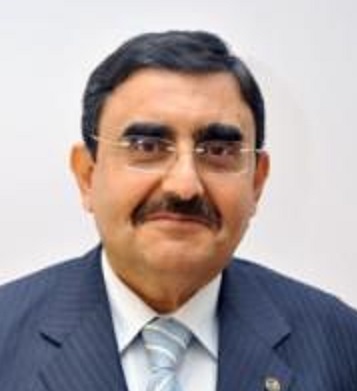
(Photo courtesy of Facebook)
By: Nada Badawi
Following reports that the EU will halt aid to Egypt, Presidential Advisor for Foreign Affairs Essam El-Haddad stated yesterday that Egypt is keen on adopting democratic institutions and fulfilling the revolution’s goals.
Many economic analysts viewed El-Haddad’s two-day visit to Berlin as an attempt by the Egyptian government to pressure the EU to push through with their loan package to Egypt.
Last November, Europe agreed to support Egypt with €5.6bn after its economy was battered following the 25 January Revolution.
The package includes a €2bn euro loan from the European Investment Bank to be disbursed over the next two years.
El-Haddad met with a number of European officials to discuss the future of Egyptian-European relations during a session allocated to the Arab Spring countries, and in light of the latest claimed news made by the EU on the aid package.
The media reported recently that the EU had warning to Egypt of the that it could lose funds from the package if progress is not shown in the field of human rights, especially with regards to the rights of women and minority groups.
In a conflicting statement, the EU Embassy in Cairo denied the news last Thursday, claiming that there has been a “misunderstanding in the statement made by the EU’s commissioner for development and growth, Stefan Fuele”.
The European Commission published a report on reforms in Eastern Europe and MENA, listing “serious setbacks” in Egypt specifically in areas such as human rights.
The report also criticised President Mohamed Morsi for pushing through constitutional changes that plunged the country into “a deeply divisive political crisis”.
The embassy said Fuele was talking specifically about “extra money earmarked for democratic reforms, not about aid in general”.
Fuele explained that the EU has already stopped payments from an aid fund that is earmarked to democratic reforms, known as “more for more.”
“The fund was set up in the aftermath of uprisings in North Africa in 2011, when the EU overhauled its aid policies to correct past failures in promoting democracy,” he said.
Another condition set by the EU is for Egypt to “abandon the practice of using military courts to judge civilians and create conditions for non-governmental institutions to function according to international standards”.
El-Haddad responded to this specific condition by commenting on the role of the military and the regime saying that it was crucial that the clear division of powers and responsibilities would be realised for the creation of a truly civil state.
“In accordance with the civil democratic model, a relationship has been formulated based on respect between the elected civilian government and the military establishment whose performance was characterised by discipline and professional awareness,” El-Haddad said.
The commission’s report additionally urged Egypt’s Islamist government to draft a “social safety net” to ensure macroeconomic stability and strengthen public finances as well as work toward a free-trade agreement with the EU.
Egypt has been seeking to offset its budget deficit since the aftermath of the revolution.
The deficit is expected to hit EGP 180bn this year due to borrowing from other countries and international institutions.
Egypt is also currently negotiating with the International Monetary Fund (IMF) over a proposed $4.8bn loan.
El-Haddad outlined the government’s plans for reform in the areas mentioned in the report, and its efforts to forge a national dialogue to achieve consensus with opposition forces.
Despite government’s attempt to bolster efforts to achieve the reforms, El-Haddad said that combating corruption, along with the conspicuous violations of human rights prevalent since Mubarak’s era, remain a considerable challenge.
“[The] Building of democratic institutions is still one of the most pressing tasks at this stage in an attempt to establish a principle of good governance,” he said.
He explained that corruption and human rights violations have seeped into different institutions of the state, making it even harder to eradicate them.
He also mentioned a third challenge: the existence of former regime figures who he said work to impede the democratic process in the country.
El-Haddad said that despite the challenges, the government has been successful in achieving such goals through holding the first democratic presidential elections in 2012 and the formulation of Egypt’s first constitution.
He later emphasised in his speech the need to focus on reviving the nation’s economy, and called for “investing in the future of Egypt” referring to young, unemployed Egyptians.
Failure to address EU concerns could result in cutbacks in aid for Morsi’s cash-strapped government, Reuters quoted Stefan Fuele saying in a news conference.
In January, president of the European Council Herman Van Rompuy announced that EU’s loan package to Egypt will only be granted once Egypt’s deal with the IMF is sealed.
“Egypt has to deliver [to receive] up to €5bn this year and next,” said Fuele. “This is the way we can stress our position.”
The EU made note of Morsi’s achievements, namely the lifting of the state of emergency in Egypt and an “orderly” organisation of elections.




